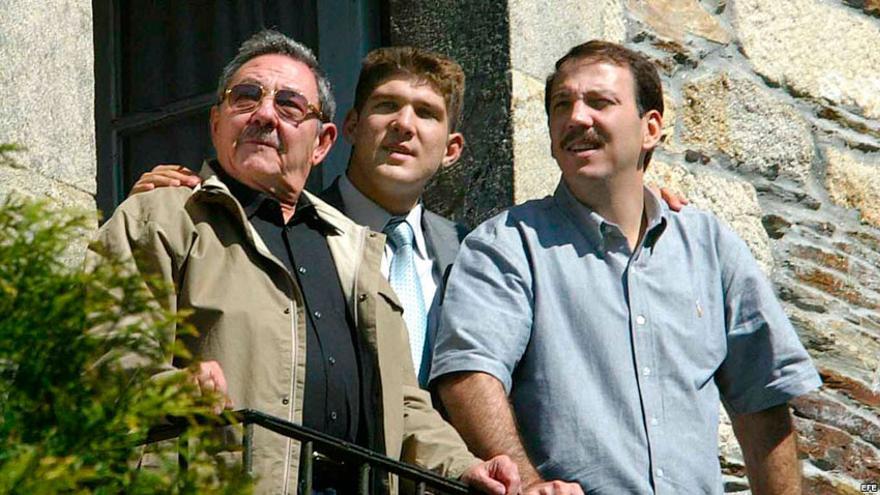
![]() 14ymedio, Yunior García Aguilera, Madrid, 31 August 2022 — If we take into consideration that the security of any country is based on the notion of stability, peace, development, as well as in the strategies to achieve these objectives, there is no doubt that the authoritarian powers on the Island constitute the main threat to National Security.
14ymedio, Yunior García Aguilera, Madrid, 31 August 2022 — If we take into consideration that the security of any country is based on the notion of stability, peace, development, as well as in the strategies to achieve these objectives, there is no doubt that the authoritarian powers on the Island constitute the main threat to National Security.
This concept emerged in the United States shortly after the end of World War II. In the context of the Cold War and facing the threat of nuclear weapons, the term focused on prevention, on the capacity to predict danger and strategies to mitigate its effect. Over time and as globalization erodes borders, the term has acquired other connotations.
Today, a state’s National Security does not only depend on external threats. Included in that concept are common delinquency, mafias, environmental risks, pandemics, catastrophes or uncontrolled migration.
In Cuba, Raúl Castro positioned his only son within something called the Commission for Defense and National Security. As usual, none of the delegates asked uncomfortable questions and no one questioned whether placing Alejandro Castro Espín in that area on a whim was in response to a true national interest or only had to do with having a colonel with the last name Castro mindfully watching over (with his only eye) the monarch’s sacred Family Security.
It is extremely difficult to define the Cuban system. It is not communist because communism does not exist, pure fiction, something which has never been nailed down anywhere on the planet. Socialism, on the other hand has so many definitions, it would be vague or imprecise to describe Cuba as a socialist state, especially when taking into consideration that on the Caribbean island, laborers are not a force with any political weight, nor do they have the opportunity to propel change in any way.
This small portion of the world has been a territory controlled since 1959 by a clan of individuals who have monopolized decisions, development strategies, and the notion of national security. Since then, Cuba has remained under the yoke of a gang which has used the ideologies of the day at whim to justify its empowerment. This caste has already failed precipitously in the country’s economic development, the conquest and guarantee of individual and collective rights, in achieving the wellbeing of the population and even in the state’s own survival.
The situation becomes more complex when the chiefdom, self-legitimized as a result of historical events, biologically disappears, in addition to the elimination of its contrarians or the best press any generation has had. But they’ve been replaced by a gang of legendless bureaucrats. The replacements (tombs in guayaberas) do not appear in the history books read by schoolchildren, nor have they worked a day in their lives, and no dove ever posed on their shoulder. The forced replacements did not inherit the charisma of their models, they cannot count on popular support, they don’t even have the benefit of the doubt.
The current situation in Cuba is the worst it’s been in decades because, beyond the inflation, lack of bread, or the 18-hour blackouts, people are no longer willing to keep silent. We are the country in Latin America with the most political prisoners, we are at the bottom of most development list, and we compete with the worst countries in rankings of human rights violations.
However, the gang that has recently moved to Siboney refuses to accept democratic solutions. They continue to blame a “blockade” which collapses every time a Cuban buys chicken “made in the USA” in a freely convertible currency (MLC) store. They insist on the threat of foreign military intervention, which even the most recalcitrant opponents in Miami completely discard. They repeat like parrots that all demonstrations of discontent are paid for by the CIA, which must be bankrupt with so many accounts to settle. Officials of team Diaz-Canel beg ordinary residents for sacrifice, babble slogans that seem like tongue twisters, demand “creative” resistance. They appeal to the people to endure face slaps from police, beatings of 11-year-old girls, and all this for a bright future in which no one believes.
Silvia Rodríguez had a point when he predicted that the people will end up confronting the government. It has done so with flowers, songs. . . or stones. Tomorrow could be worse. The main threat to national secuirty is the system itself.
Translated by: Silvia Suárez
____________
COLLABORATE WITH OUR WORK: The 14ymedio team is committed to practicing serious journalism that reflects Cuba’s reality in all its depth. Thank you for joining us on this long journey. We invite you to continue supporting us by becoming a member of 14ymedio now. Together we can continue transforming journalism in Cuba.
